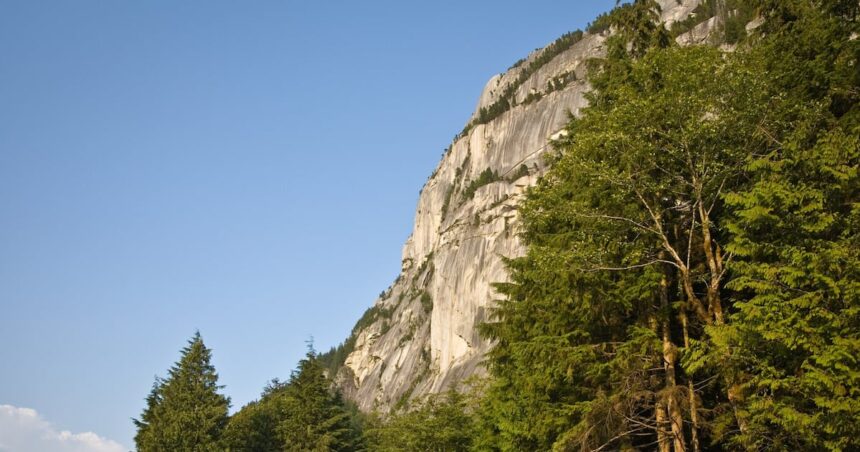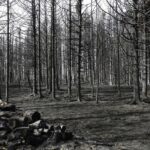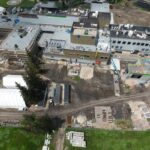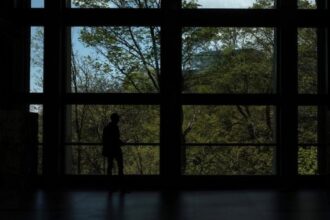A popular hiking destination near Squamish, B.C. has been partially closed after multiple encounters between visitors and a bear that has become dangerously habituated to human food. Conservation officers announced Wednesday that sections of Stawamus Chief Provincial Park will remain off-limits to visitors until further notice, marking an unusual mid-summer restriction at one of the region’s most visited natural attractions.
The closure specifically affects the campground and day-use area near the base of the massive granite monolith, though climbing routes and hiking trails to the three peaks remain accessible. Officials from the B.C. Conservation Officer Service report that a black bear has been repeatedly approaching hikers and campers in search of food, demonstrating concerning behavioral patterns that suggest significant habituation to human presence.
“This bear has lost its natural wariness of people and now associates humans with food rewards,” explained Senior Conservation Officer Brittany Mueller. “It’s been observed approaching occupied tents, picnic areas, and even following hikers along trails—behavior that presents a serious public safety concern.”
The conservation team has documented at least seven separate incidents involving the bear over the past two weeks. In one particularly alarming encounter, the animal reportedly tore through a tent at the campground after detecting food inside, though fortunately no injuries were reported.
Wildlife experts emphasize that this situation exemplifies the dangerous consequences of improper food storage and garbage management in wilderness areas. According to provincial data, bears that become food-conditioned often become increasingly bold and unpredictable, ultimately leading to situations where euthanization becomes the only option to protect public safety.
“This is precisely why we implement strict food storage regulations in all provincial parks,” said Squamish District Park Supervisor Jerome Richards. “Once bears associate humans with easy meals, reversing that behavior is extremely difficult, if not impossible.”
The timing of the closure is particularly significant as it coincides with peak tourism season. The Stawamus Chief, known locally as simply “The Chief,” attracts thousands of visitors during summer months for its world-class rock climbing opportunities and breathtaking hiking trails that offer panoramic views of Howe Sound and surrounding mountains.
Local business owners express concern about potential economic impacts if the closure extends for a prolonged period. “July and August are our busiest months, with climbers and hikers filling accommodations and restaurants,” noted Shannon Talsma, president of the Squamish Chamber of Commerce. “While we fully support safety measures, we’re hopeful for a swift resolution.”
Conservation officers are currently employing various management techniques to capture the bear, with plans to assess its behavior and determine appropriate next steps. Aversive conditioning methods may be attempted, though officials acknowledge that relocation often proves ineffective with severely food-conditioned bears.
Park officials urge visitors to remain vigilant at nearby recreation sites and to report any bear sightings immediately. The B.C. Parks website will provide regular updates regarding the closure status and alternative hiking opportunities in the area.
As our relationship with wilderness areas grows increasingly complex, one must wonder: at what point does our recreational enjoyment of natural spaces begin to fundamentally alter the wildlife that makes these places special in the first place?

























